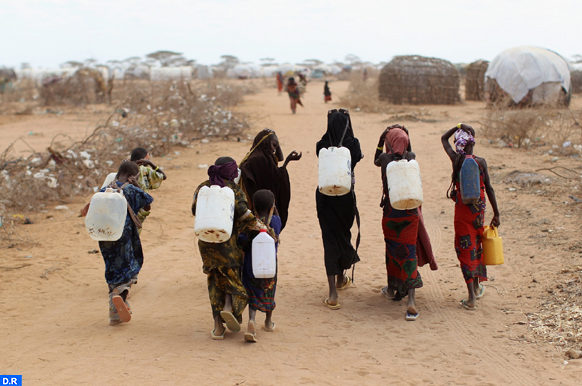‘Triple Threat’ Contributes to Extreme Food Insecurity in Somalia – FAO Warns
Rome – Poor rainfall, flooding and desert locusts are contributing to extreme food insecurity in Somalia, threating 2.6 million people, the Food and Agriculture Organization (FAO) warned on Wednesday.
In a report, the Specialized UN Agency stresses that in the absence of large-scale and sustained humanitarian assistance “the situation could worsen through mid-2021.”
The report, compiled by FAO’s Food Security and Nutrition Analysis Unit and the Famine Early Warning Systems Network (FEWS NET), highlights that desert locusts will continue to pose a serious risk of damage to both pasture and crops countrywide.
It also and cites forecasts that indicate an increased likelihood of below-average rainfall during the April-June season across most of the country that will further exacerbate food and nutrition insecurity for millions.
“Somalia’s long-standing crises are compounded now by the ‘triple threat’ of the COVID-19 pandemic, desert locust infestations and climatic shocks,” said UN Deputy Special Representative Adam Abdelmoula, who also serves as the Resident and Humanitarian Coordinator for the country.
From July to December, an average of 1.8 million people per month received assistance in parts of Somalia.
While the large-scale humanitarian and Government support helped to minimize the magnitude of the crisis last year, funding is needed urgently to boost efforts to reduce new food insecurity currently threatening the country.
According to the humanitarian assistance plan for the first quarter of 2021, some 1.6 million people are facing Crisis (Integrated Food Security, IPC Phase 3)– or worse.
Moreover, an additional 2.5 million people are Stressed (IPC Phase 2), bringing the total number of acute food insecure to 4.1 million, which includes approximately 840,000 under-age-five children who are likely to be acutely malnourished, nearly 143,000 of them severely so.
Pointing to a multitude of threats and crises in poor rural, urban and displaced populations, the joint report said that food insecurity is expected to deteriorate from April to June.














